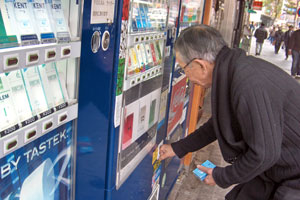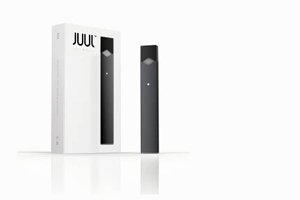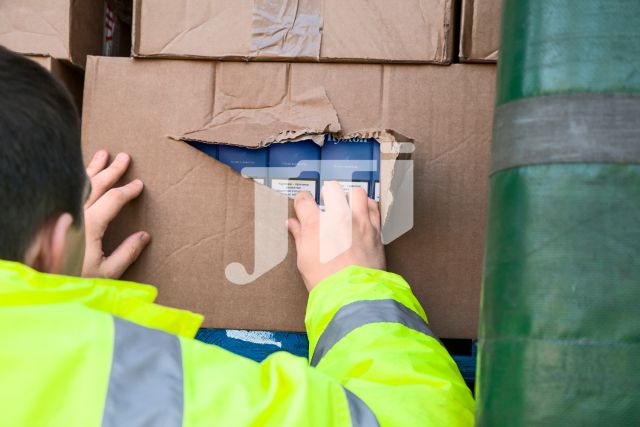Cigarette sales in Indonesia fell by 5.5 percent during the first half of this year, according to an Antara News Agency story quoting the Customs and Excise Directorate General’s acting technical director Nugroho Wahyu Widodo.
As at the end of June, 272 billion cigarettes had been sold during 2018, down from the 288 billion sold during the six months to the end of June 2017.
Nugraha said these figures had come from the national health survey, but that AC Nielsen’s research had shown similar results.
Speaking in Nusa Dua on Friday, he said that the decline in sales was proof that the number of smokers had ‘also tumbled’.
Nugroho said also that while cigarette duty contributed greatly to the state’s revenue, the government was committed to controlling the number of smokers.
Category: Taxation

Sales down in Indonesia

Accusations out of Africa
Wealthy Western states need to put Big Tobacco in its place and prove to the developing world that they can tame the cigarette industry through concerted, unified action, according to a story by Michael Wilcox at africatimes.com.
Writing ahead of the eighth biannual summit in Geneva of the World Health Organization’s Framework Convention on Tobacco Control (FCTC), Wilcox said it was crucial that the signatories to the FCTC stood firm.
As the tobacco industry tried to foist modern-day colonialism on Africa and Asia, it was urgent that the old colonial powers came to their aid.
Wilcox started his piece by saying that, since the first American explorers brought tobacco back to Europe at the turn of the 16th century, smoking had always been a first-world problem. ‘The product may have been grown by slaves in the Americas, or farmers in Africa and Asia, but it was always marketed to a wealthy Euro-American audience,’ he said.
‘Yet now Big Tobacco is shifting focus, driven by declining smoking rates in its core markets. New research shows the industry is ramping up production in Africa, attempting to exploit its growing wealth and lax tobacco regulation.
‘This is just the latest evidence of manufacturers’ growing infatuation with the developing world, where smoking is, worryingly, already on the rise.
‘Now it’s time for the global community to take action, before the industry gets an iron grip.’
There must be another way
Most smokers in Australia think that a September 1 excise tax increase was a tax grab by a greedy government aimed at exploiting and punishing smokers for their addiction rather than a genuine attempt to reduce smoking rates, according to a story at news.com.au.
The story, by Colin Mendelsohn, the chairman of the Australian Tobacco Harm Reduction Association and Associate Professor of the School of Public Health and Community Medicine, University of New South Wales, said that cigarette prices had doubled in Australia since 2008 and were now the highest in the world.
Increasing tobacco taxes was a proven strategy for reducing smoking rates, Mendelsohn said, but it seemed to be having a diminishing effect at these ‘stratospheric levels’. Despite annual price increases, there had been no significant fall in Australian smoking rates from 2013 to 2016, according to the three-yearly National Drug Strategy Household Surveys.
Tobacco excise had delivered a massive $12.5 billion to government coffers during the past financial year. However, this tax was particularly cruel at a time of zero wage growth. High prices exploited the most marginalised members of the community, such as low-income groups, Indigenous people and people with substance-use and mental-illness issues.
Another unwanted effect of high prices had been the exponential growth in the illicit tobacco industry. Illicit tobacco from smuggling and illicit tobacco crops made up 15-28 percent of the total tobacco market and funded organized crime and terrorism.
‘Australia’s tobacco control policy has always focused on telling smokers to just quit, also known as the ‘quit or die’ approach,’ Mendelsohn said…
‘However, there is now a viable alternative: vaping. Nicotine vaporisers (e-cigarettes) provide the nicotine that smokers are addicted to but without the tar and carbon monoxide that cause almost all the harm to health. Importantly they also replicate the smoking ritual and provide some of the pleasure and habit that makes quitting so difficult.’
UK taxes too high
Eighty-six percent of UK adult smokers believe that tobacco prices are too high, while 56 percent agree that rising prices tempt them to buy untaxed tobacco, according to the results of a survey commissioned by the UK’s Tobacco Manufacturers’ Association (UKTMA).
The survey of more than 12,000 adult smokers in the UK found that more than three-quarters regularly avoid UK taxes by buying tobacco from the black market, abroad or duty free.
It found that the number of smokers who avoid paying UK duty now stands at an all-time high, a finding that the UKTMA says supports HM Revenue and Customs analysis that untaxed and illicit tobacco remains a problem throughout the UK.
‘Moreover,’ the UKTMA said in a press note, ‘the findings confirm that adult smokers are being pushed towards non-UK-duty tobacco by high tobacco taxation, the introduction of plain packaging and the recent ban on minimum tobacco pack sizes.’
The key findings of the survey were said to be:- ’76 percent of adult smokers buy untaxed tobacco at least once a year – this can be from legal sources such as at duty free but also includes illegal sources such as from people in the pub or in street markets.’
- ’16 percent of adult smokers spend more than £1,000 on untaxed tobacco every year.’
- ’28 percent of smokers agree that plain packaging tempts them to buy untaxed tobacco.’
- ’37 percent of smokers agree that minimum pack sizes tempt them to buy untaxed tobacco.’
- ‘The average price for a pack of 20 illegal cigarettes is just £4.33 – almost half the typical legitimate UK price.’
- ‘London (85 percent) has the highest prevalence on non-UK duty paid tobacco purchases with Wales having the lowest (70 percent).’
- ’86 percent of adult smokers believe that tobacco prices are too high and 56 percent agree that rising tobacco prices tempt them to buy untaxed tobacco.’
- ’64 percent of adult smokers would support the re-introduction of duty free tobacco shopping from the EU post Brexit even if it was limited to 200 cigarettes or 250 g roll your own tobacco.’
‘These findings reinforce the concern that the illicit tobacco trade is continuing to be a major problem,’ the press note said.
‘Valued at £2.5 billion in 2016-17 by HRMC, the illicit tobacco trade reduces tobacco tax revenues, brings crime into communities, costs jobs and impacts legitimate business, particularly independent retailers.
‘The TMA recommends that, post-Brexit, the UK introduces fixed limits on personal tobacco imports to end the option for smokers to bring unlimited amounts of cheap tobacco back from the EU. This would reduce the opportunity for criminals to buy tobacco, claiming it is for personal use and then selling it on illegally.’
Giles Roca, the director general of the UKTMA was quoted as saying that the survey, now in its fifth year, had shown that the issue of untaxed tobacco was becoming an even greater problem across the UK.
“Smokers cite price as the chief reason for avoiding duty and with tax making up 90 percent of the price, combined with two duty increases in 2017 we can see the direct impact that the Government’s taxation policy is having,” Roca said.
“This survey also shows that the introduction of plain packaging and the ban on small packs of tobacco in the last year are also contributing to making the problem of untaxed tobacco purchases worse and encouraging smokers to buy from illegal sources.
“The Government needs to undertake a full review of its approach towards tobacco as their policies are contributing to this illegal activity, which affects local communities, public finances and small business.”
No sin, no tax
Despite earlier fears, the UK Exchequer has no plans to introduce a new tax on vaping products.
The UK Vaping Industry Association (UKVIA) said yesterday that it had received a letter from HM Treasury in which the Exchequer Secretary, Robert Jenrick, said ‘we have no current plans to introduce a new tax on vaping products’.
Jenrick was writing to the UKVIA in response to an open letter that was signed also by the Center for Policy Studies, the Institute of Economic Affairs, the TaxPayers’ Alliance, the Adam Smith Institute, The Freedom Association and the New Nicotine Alliance.
Following media speculation at the beginning of this month that vaping products were to become the subject of a ‘sin tax’, the UKVIA pointed out that, according to Action on Smoking and Health (ASH) figures, of the nearly three million UK vapers, more than half had given up smoking, and 97 percent were either smokers or ex-smokers.
It said that the value of health gains associated with a single successful quit attempt was £74,000 according to the Medicines and Healthcare products Regulatory Agency, and therefore, the ASH figures suggested that vaping had already saved the UK in the region of £111 billion.
And it could save more, though it had to be borne in mind that the principal reason for people switching to vaping from smoking was that vaping was substantially cheaper.
In his response, Jenrick said he agreed that vaping had a role to play in reducing smoking, as set out in the Department of Health and Social Care’s Tobacco Control Plan ‘towards a smoke free generation’.
And he noted the UKVIA’s comments about the savings to the NHS and the statistics from ASH.
Reflecting on smuggling
The European Commission has said that it is reflecting on whether additional activities should be proposed in respect of the implementation of its 2013 strategy aimed at combatting the illegal trade in tobacco products.
The Commission was replying in writing to two questions from the German member of the European Parliament, Wolf Klinz, who said, in a preamble to his questions, that the EU had been confronted with the smuggling of tobacco products across its eastern and southern borders.
The cheap prices of smuggled tobacco products risked undermining the EU’s efforts to limit smoking, he added, before asking:
‘Is the Commission aware of the smuggling methods and the organized groups behind the smuggling?
‘What is the Commission doing to combat the smuggling?’
In reply, the Commission said the illegal tobacco trade was a cross-border phenomenon that required a global approach and international co-operation.
‘In the past years, the Commission has promoted the ratification of a new global anti-smuggling treaty, i.e. the Protocol to Eliminate Illicit Trade in Tobacco Products to the World Health Organization’s Framework Convention on Tobacco Control…,’ it said. ‘The Commission welcomes the entry into force of the Protocol in September 2018 as a significant step forward in the fight against cigarette smuggling.
‘The Commission presented in May 2017 a report on progress in the fight against the illicit tobacco trade; that report also touches upon current smuggling trends. The report found that, despite the measures taken in recent years, the illicit tobacco trade remains at preoccupying levels in the EU. The Commission is therefore currently reflecting whether additional activities should be proposed in implementation of its 2013 strategy, which remains pertinent and relevant.
‘The European Anti-Fraud Office (OLAF) has an investigative mandate to fight tobacco smuggling into the EU. OLAF also co-ordinates anti-smuggling operations carried out by law-enforcement agencies across Europe and ensures that evaded duties are recovered, smuggling networks are dismantled and perpetrators brought to justice. OLAF is well aware of current trends in the smuggling of tobacco products.’
Smokers to pay the price
In announcing that it had applied to increase the retail prices of its tobacco products, Japan Tobacco Inc. said today that declining sales made it difficult to maintain quality and services with cost reductions alone.
JT said it had applied to the Minister of Finance for approval to ‘amend’ retail prices of tobacco products in Japan in conjunction with a planned tobacco-excise-tax hike on October 1.
JT said it had applied to increase the retail prices of 143 products, including 122 cigarettes, one cigarillo, three pipe tobaccos, three cut tobaccos and 14 snuff tobaccos. Additionally, it said it had applied for seven Ploom TECH product price rises in the tobacco vapor category.
‘The Japanese domestic tobacco market continues to experience decreasing sales volumes due to structural factors including the aging and declining adult population, as well as increasingly stringent smoking restrictions,’ the company said in a note posted on its website. ‘At the same time the cost per pack for providing the same quality and services has been increasing. Under these circumstances, JT had been maintaining the quality and price levels through cost reducing efforts.
‘However, since JT is projecting a further sales volume decline, it is very difficult to maintain the same quality and services with cost reduction initiatives alone. In this context, JT has applied to amend the retail prices of cigarettes, which exceeds the excise tax hike of ¥1.0 per cigarette, considering further increases in costs including materials. Retail price increases will vary among different brands and products, to ensure that the quality of each product will be maintained and that consumer expectations continue to be met.’
JT added that, within the tobacco vapor category, a new tax system would be imposed in stages over a five-year period. JT said it had decided to apply a ¥30 increase to the retail price of Ploom TECH, whose tax was expected to be increased by ¥30.89 a pack.
A table of representative brands presented in the note indicated that the retail price of a pack of Mevius cigarettes would rise by ¥40 to ¥480, while the price of Winston and Hi-Lite would increase by ¥30 to 450, and the price of Hope would go up by ¥20 to ¥250.
‘New retail prices will be effective on October 1, 2018, following the Minister of Finance’s approval,’ JT said.
Israel looks to ban Juul
The Israeli Ministry of Health has come out in favor of banning the marketing of the e-cigarette Juul, according to a story by Adrian Filut and Lilach Baumer for Calcalist, quoting officials at the ministry.
The decision about whether such a ban is introduced now hinges on its receiving a stamp of approval from the country’s attorney general.
A report in the Ha’aretz newspaper, meanwhile, suggested that the ban would apply to ‘nicotine-rich electronic cigarettes like [presumably meaning such as] the popular Juul’.
The Calcalist story said that sales of Juul, which was launched initially in the US in 2015, had gained momentum during the past 12 months. ‘According to a CNBC article citing data by market research firm Nielsen published Saturday, Juul’s sales have shot up almost 800 percent over the past year and the company now controls around 71 percent of the US e-cigarette market,’ it said.
Juul was launched in Israel in May and in the UK in July. The product’s consumable pods sold in Israel are rated at 5 percent nicotine, while those sold in the UK are rated at 1.7 percent, to comply with European regulations.
Grant Winterton, Juul Labs’ president for Europe, the Middle East and Africa, told Reuters last month that the UK had been chosen as Juul’s third market after the US and Israel, partly because it had the world’s “most supportive government” when it came to encouraging smokers to vape. Also on the radar were said to be France, Germany and Italy.
Israel, on the other hand, seems opposed to reduced-risk products in general. In March, the Knesset’s Finance Committee approved a measure to tax heated-tobacco products such as Philip Morris International’s IQOS at 65 percent of the retail price, in line with the tax on cigarettes.
Taxing times for vaping
UK vapers could be hit with excise tax in this autumn’s budget, according to a story by Lynn Davidson for The Sun.
Davidson quoted Whitehall sources as saying that so-called ‘sin taxes’ would be increased in this autumn’s Budget.
And one was said to have told the Sun that vapers were likely to be hit because they were not taxed at all [outside of VAT].
Pro-vaping activists have rallied round to point out that vaping is not a sin, though this is unlikely to cut much ice because the Chancellor won’t dress it up that way and, anyway, nor is driving a car but fuel is the subject of excise.
What might deter the Chancellor is the fact that the Government is aware that vaping has saved the National Health Service (NHS) billions of pounds and could save it more. As part of making its decision, his team will no doubt calculate whether the reduction in NHS savings caused by smokers being put off switching to vaping by the tax-induced increase in electronic-cigarette prices would be more than offset by the additional tax revenue. The former, of course, is merely a calculation, while the latter is cash in hand.
Still, the NHS savings figures seem impressive. The UK Vaping Industry Association (UKVIA) pointed out that, according to Action on Smoking and Health (ASH) figures, of the nearly three million UK vapers, more than half had given up smoking, and 97 percent were either smokers or ex-smokers.
It said that the value of health gains associated with a single successful quit attempt was £74,000 according to the Medicines and Healthcare products Regulatory Agency, and therefore, the ASH figures suggested that vaping had already saved the UK in the region of £111 billion.
And it could save more, though it had to be borne in mind that the principal reason for people switching to vaping from smoking was that vaping was substantially cheaper.
A question of fraud
A Spanish member of the European Parliament wants to know how much is being ‘lost’ to tobacco smuggling.
In a preamble to questions posed to the Commission, José Ignacio Salafranca Sánchez-Neyra said tobacco smuggling was one of the leading types of fraud causing huge losses to the EU budget.
With that in mind, he asked the Commission:
1) Whether it was taking any measures, in conjunction with member states, to curb this illegal practice.
2) And whether it had any figures/percentages for the amounts lost to fraud; and if so, what were the figures for 2017.
These questions are due to be answered by the Commission in writing.










